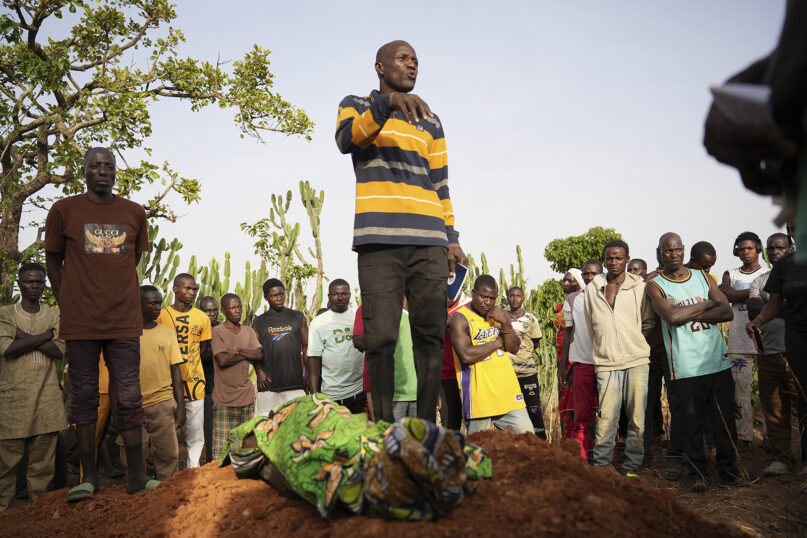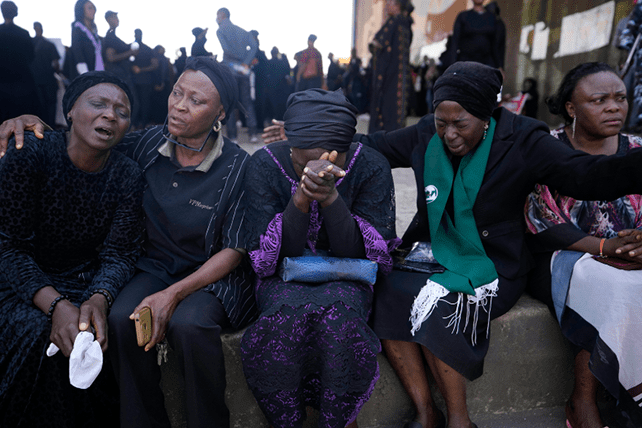“The attacks are strategic,” said Peter Akachukwu, a security analyst in Lagos. “Targeting Christians sows fear, displaces communities and opens up land for occupation. It destabilizes the state and undermines faith in government protection.”
People attend the funeral of a man who was killed during an attack by gunmen in the Zike farming community in north-central Nigeria, April 15, 2025. (AP Photo/Samson Omale)
Across Nigeria’s Middle Belt and northern states, congregations at Sunday services are shrinking. Families who once filled pews now pray quietly at home, afraid of becoming the next victims. Some travel long distances to find safer congregations; others have stopped attending altogether.
Pastor Emmanuel Ochefu, who leads a small Pentecostal church outside Makurdi in Benue state, said in a phone interview that attendance has dropped by more than half this year.
“People call me during the week asking if the service will be safe, if the roads are clear,” he said. “Some decide to stay home rather than risk being kidnapped or attacked. I preach hope, I preach courage, but fear is stronger than my words right now.”
To keep worship alive, Ochefu has shortened services, started holding them earlier in the day and shifted some meetings to private homes. He sends recorded sermons and Bible verses by phone to members too scared to attend. “But church is meant to be together,” he said. “You can’t hug someone through a phone.”
Church leaders say the Aug. 11 assault was not just an attack on property but an assault on faith itself.
In a statement, the Nigeria Catholic Diocesan Priests’ Association condemned the attack as “barbaric” and “an attack on the Church,” saying it led to the “desecration and destruction of the Parish Church, the Parish Secretariat, the Father’s House and many other valuable items.”
They urged the government to rebuild the parish and its outstations and to deploy security forces to protect vulnerable communities, warning that continued inaction could lead to more deaths and displacements, further weakening Christian presence in the region.
The violence is reshaping what it means to be Christian in Nigeria. Believers now hide crosses, avoid public prayer and strip Christian symbols from their cars and homes.
“If I stopped being Christian, maybe my life would be easier,” Abah said. “But I cannot. My mother taught me this faith, and my children sleep under crosses. Faith is everything, but faith is heavy now.”
The Nigerian government insists the violence is driven by ethnic and land-use conflicts rather than religion alone, but human rights groups argue Christians are targeted specifically for their faith and are urging stronger protections, faster response times and accountability for perpetrators.
For now, pastors like Ochefu keep showing up, even if only a handful gather. “Even if just 10 people come next Sunday, I will preach,” he said. “The church is not just a building. As long as one believer remains, there is hope.”

